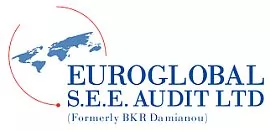On December 6, 2010, the government of Romania approved an Emergency Ordinance, which introduces that the retirees with incomes higher than 740 RON will have to pay contribution of 5.5% to the National Unique Health Insurance Fund (NHI), starting with January 1, 2011. The Emergency Ordinance has been published in the Official Gazette no. 830 of December 10, 2010 as Emergency Ordinance no. 107/2010 for the amending and supplementing of Law no. 95/2006 on health reform.
More than 2 million people are expected to be affected by this new measure.
First degree relatives of an insured person (husband, wife and parents) will remain exempted from the payment, as well as children, young people and students, if they do not obtain incomes.
Currently, only retirees with pension of more than 1,000 RON pay health contribution of 5.5% which was only applicable to the amount exceeding 1000 RON. From January 1, 2011, the percentage is applied to all incomes from pensions that are higher than 740 RON and the contribution will apply to the total pension amount.
According to the calculations made by Health Ministry, one of three Romanian citizens makes payments to the health insurance system. Regarding the contribution level to be paid to NHI, the contribution level used to be a 7% for the insured person and a 7% for the employer (this contribution level existed until December 31, 2008). Subsequently, the contribution level is decreased to 5.5% for employees and 5.2% for employers.
A standardised and clarified basis for calculation for these contributions and also for the individual income tax basis became a necessity.
According to the Romanian Tax Code, the basis of income tax is divided by two categories: incomes obtained as salaries or from similar situations, and incomes obtained from independent activities, respectively.
With the latest amendment of the Tax Code, the Government has
decided that regarding the social contributions and taxes due, the
persons obtaining incomes from independent activities will be
jointly liable with the companies where they perform the activity,
if their activities can be assimilated to dependent activities and
consequently the incomes will be treated as salaries.
The tax authorities will be allowed to reconsider an activity and
any other elements that reflect the dependent nature of the
activity as dependent activity. Accordingly income from these
activities shall be treated as a salary. Persons who perform
independent activities will continue to submit contracts or
statements to the health insurance offices, until adopting a
possible unification.
Simultaneously, the unification of the basis for calculation aims at introducing a unique statement on social contributions for employers. Currently the contributions are declared separately to the National Agency for Employment, National Health Insurance Company and National Pension Company and Other Social Insurance Rights.
The business environment needs stability and clear rules on how to apply the legal stipulations.
The content of this article is intended to provide a general guide to the subject matter. Specialist advice should be sought about your specific circumstances.

